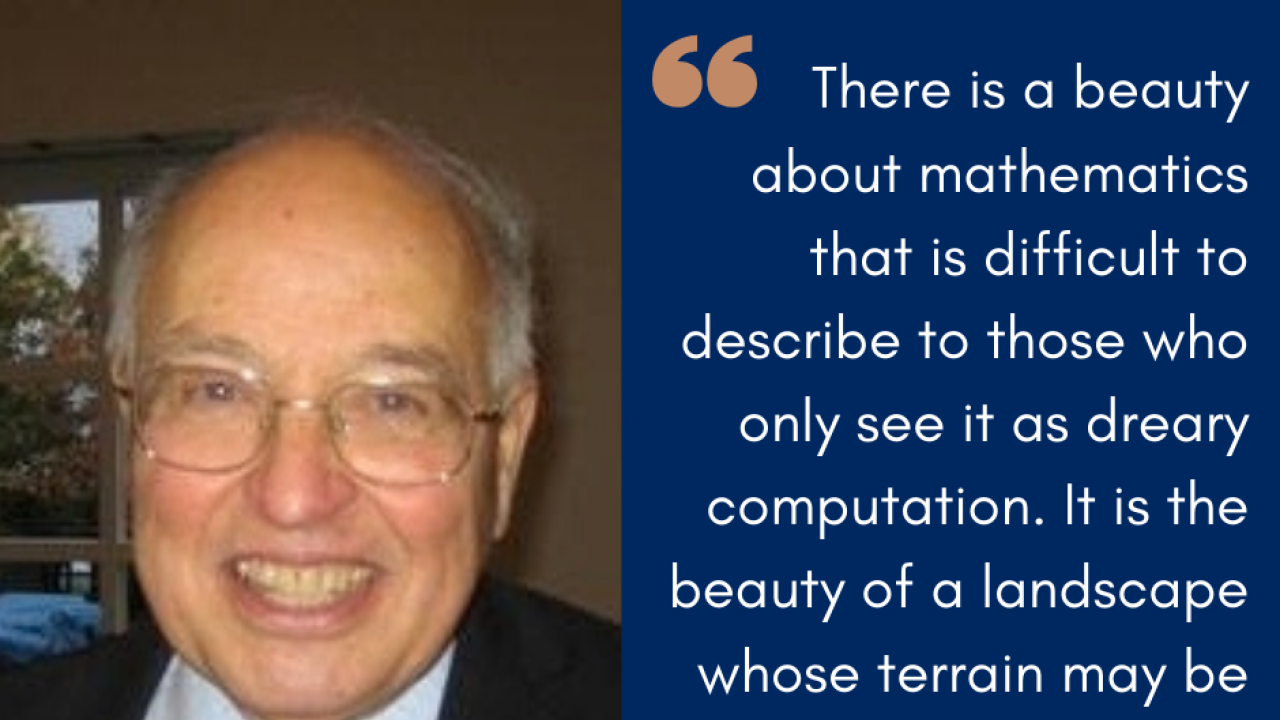
Why be a scientist? Nearly every scientist has a different answer and a different inspiration, drawn from varied careers, outlooks, and experiences. For its 40th anniversary in 2004, ICTP published the book One Hundred Reasons to be a Scientist, a collection of 100 essays from many eminent physicists and mathematicians with a connection to ICTP. The book is a source of many insights from the lives and careers of scientists, including Mildred Dresselhaus, Freeman Dyson, Vera Rubin, and Francis K.A. Allotey. The authors discuss what led them to study science, the difficulties they encountered and overcame, and their passions and hopes for the future.
We are revisiting twenty of these stories highlighting one of them every week, sharing inspirations from the essays and showcasing the words of these great scientists. During the uncertainty of the current global pandemic, the words will hopefully help researchers feel less alone in their scientific path.
We are presenting this week the story of Michael F. Atiyah, a British-Lebanese mathematician, who was awarded the Fields Medal in 1966 “for his work in K-Theory, in particular for the proof of the Index Theorem and the Lefschetz fixed points formula”.
Atiyah was born in London but lived in Sudan and Egypt for most of his childhood. Later, he spent his academic life at the Universities of Oxford and Cambridge, including a year of research at the Institute for Advanced Study. He was president of the Royal Society and founding director of the Isaac Newton Institute in Cambridge, UK. He was awarded several prestigious prizes such as the Fields Medal in 1966 and the Abel Prize in 2004.
In his essay, Atiyah tells how his early passion for the work of Irish mathematical physicist Sir William Rowan Hamilton led him to apply, later in his career, these tools to new developments at the frontiers between algebra, geometry and physics. You can read it here.
If you want to learn more about Michael Atiyah, here you can read a piece by Professor M.S. Narasimhan as he remembers and reflects on the late mathematician's contributions to science.
Here you can also watch Sir Michael Atiyah as he gives a seminar at the Institute of Advanced Study in 2010 on “Beauty and Truth in Mathematics: a Tribute to Albert Einstein and Hermann Weyl”. Moreover, here you can watch him giving one of the Oxford Mathematics Public Lectures, with the title “Numbers are Serious but they are also Fun”.
Finally, if you are interested in learning about 99 more scientists and what inspired them, you can find the whole book in electronic format for free download on ICTP’s library website, in English, Italian and Urdu.
Here you can read the previous stories:
















